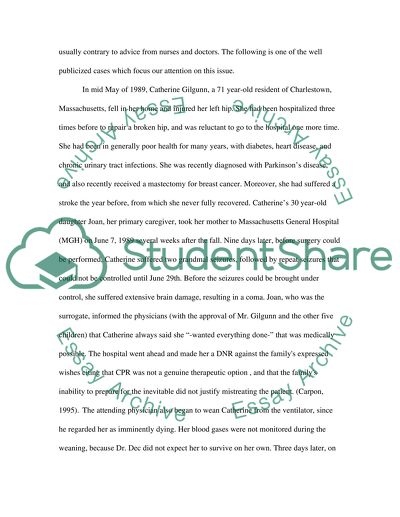Cite this document
(Nursing: Ethics of Medical Futility Term Paper Example | Topics and Well Written Essays - 1750 words, n.d.)
Nursing: Ethics of Medical Futility Term Paper Example | Topics and Well Written Essays - 1750 words. https://studentshare.org/nursing/1554804-nursing-ehics-of-medical-futility
Nursing: Ethics of Medical Futility Term Paper Example | Topics and Well Written Essays - 1750 words. https://studentshare.org/nursing/1554804-nursing-ehics-of-medical-futility
(Nursing: Ethics of Medical Futility Term Paper Example | Topics and Well Written Essays - 1750 Words)
Nursing: Ethics of Medical Futility Term Paper Example | Topics and Well Written Essays - 1750 Words. https://studentshare.org/nursing/1554804-nursing-ehics-of-medical-futility.
Nursing: Ethics of Medical Futility Term Paper Example | Topics and Well Written Essays - 1750 Words. https://studentshare.org/nursing/1554804-nursing-ehics-of-medical-futility.
“Nursing: Ethics of Medical Futility Term Paper Example | Topics and Well Written Essays - 1750 Words”. https://studentshare.org/nursing/1554804-nursing-ehics-of-medical-futility.


